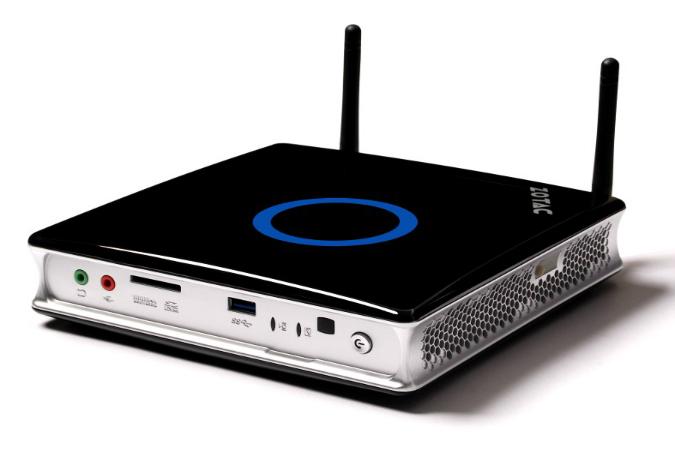
Anyway, the Zbox ID45 ships in one of two varieties: a barebones kit as well as a fully outfitted system. The skeletal rig – which doesn’t include memory (RAM) or hard drive – includes an Intel Core i3 3227 U dual-core processor clocked at 1.9 GHz, Nvidia GeForce GT 640 graphics with 2GB of RAM, a pair of DIMM slots with support for up to 16GB of
Meanwhile, the fully equipped Zbox ID45, dubbed the Zbox ID45 Plus, includes everything found in the barebones models while also adding in 4GB of RAM along with a 500GB 5400-rpm mechanical hard drive.
“Zotac has always married the capabilities of energy-efficient Intel processors with incredible Nvidia GeForce graphics since the first ZBOX shipped with Nvidia Ion,” said Carsten Berger, senior director, ZOTAC International. “The latest ZBOX ID45 series pushes that synergy even further with greater performance while maintaining excellent energy-efficiency.”
Though the ID45 is spearheaded by an Ivy Bridge processor as opposed to a newer Haswell chip, considering the ID45’s target audience (casual users/HTPC fans), we wonder whether that’d be an issue to begin with from a performance standpoint.
Pricing and release date information are currently unavailable. (Will it hit the list of best PCs under $100?) What do you think of the Zotac Zbox ID45? Sound off in the comments below.


